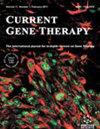Pembrolizumab单药或联合疗法对转移性三阴性乳腺癌患者的疗效和安全性:随机对照试验的系统回顾和元分析
IF 3.3
4区 医学
Q2 GENETICS & HEREDITY
引用次数: 0
摘要
背景:转移性三阴性乳腺癌(mTNBC转移性三阴性乳腺癌(mTNBC)是侵袭性最强的乳腺癌,转移和复发的风险更大。已有研究对pembrolizumab的优缺点进行了深入分析,大量试验的早期数据表明,mTNBC患者的疗效显著。本荟萃分析比较了众多相关研究的数据,以评估pembrolizumab单药或联合疗法治疗mTNBC的安全性和有效性。研究方法为了确定符合条件的 RCT,我们使用电子数据库进行了全面的文献检索。利用 CMA 软件使用固定效应和随机效应模型进行异质性检验。结果根据我们的汇总数据,中位无进展生存期(PFS)为 2.66 个月,中位总生存期(OS)为 12.26 个月。此外,通过比较 PD-L1 阳性组和 PD-L1 阴性组的疗效指标,我们发现 PD-L1 的过度表达与 OS、PFS 和 ORR 之间存在相关性。与PD-L1阴性肿瘤患者相比,PD-L1阳性肿瘤患者的反应率更高,ORR为21.1%。一线免疫疗法的ORR高于≥二线免疫疗法。此外,pembrolizumab+联合治疗导致的免疫相关不良事件发生率为22.7%。结论mTNBC患者对pembrolizumab单药治疗有一定的反应。此外,PD-L1阳性、非肝/肺转移、联合治疗和一线免疫治疗可能预示着Pembrolizumab治疗的更好结果。Pembrolizumab与化疗联合使用可能对PD-L1阳性肿瘤患者更有利。本文章由计算机程序翻译,如有差异,请以英文原文为准。
Efficacy and Safety of Pembrolizumab Monotherapy or Combined Therapy in Patients with Metastatic Triple-negative Breast Cancer: A Systematic Review and Meta-Analysis of Randomised Controlled Trials
Background: Metastatic Triple-negative Breast Cancer (mTNBC) is the most aggressive form of breast cancer, with a greater risk of metastasis and recurrence. Research studies have published in-depth analyses of the advantages and disadvantages of pembrolizumab, and early data from numerous trials suggests that patients with mTNBC have had remarkable outcomes. This meta-analysis compares the data from numerous relevant studies in order to evaluate the safety and efficacy of pembrolizumab monotherapy or combination therapies for mTNBC. Methods: To identify eligible RCTs, a thorough literature search was carried out using electronic databases. CMA software was utilized to perform heterogeneity tests using fixed and random-effects models. Results: According to our pooled data, the median Progression-free Survival (PFS) was 2.66 months, and the median overall survival (OS) was 12.26 months. Furthermore, by comparing efficacy indicators between PD-L1–positive and PD-L1–negative groups, a correlation was found between the overexpression of PD-L1 with OS, PFS, and ORR. Patients with PD-L1-positive tumors had a higher response rate, with an ORR of 21.1%, compared to the patients with PD-L1-negative tumors. The ORR for first-line immunotherapy was higher than that of ≥second-line immunotherapy. In addition, pembrolizumab plus combination treatment resulted in a pooled incidence of immune-related adverse events of 22.7%. Conclusion: A modest response to pembrolizumab monotherapy was detected in the mTNBC patients. Furthermore, a better outcome from pembrolizumab treatment may be predicted by PD-L1-- positive status, non-liver/lung metastases, combination therapy, and first-line immunotherapy. Pembrolizumab, in combination with chemotherapy, may be more beneficial for patients whose tumors are PD-L1 positive.
求助全文
通过发布文献求助,成功后即可免费获取论文全文。
去求助
来源期刊

Current gene therapy
医学-遗传学
CiteScore
6.70
自引率
2.80%
发文量
46
期刊介绍:
Current Gene Therapy is a bi-monthly peer-reviewed journal aimed at academic and industrial scientists with an interest in major topics concerning basic research and clinical applications of gene and cell therapy of diseases. Cell therapy manuscripts can also include application in diseases when cells have been genetically modified. Current Gene Therapy publishes full-length/mini reviews and original research on the latest developments in gene transfer and gene expression analysis, vector development, cellular genetic engineering, animal models and human clinical applications of gene and cell therapy for the treatment of diseases.
Current Gene Therapy publishes reviews and original research containing experimental data on gene and cell therapy. The journal also includes manuscripts on technological advances, ethical and regulatory considerations of gene and cell therapy. Reviews should provide the reader with a comprehensive assessment of any area of experimental biology applied to molecular medicine that is not only of significance within a particular field of gene therapy and cell therapy but also of interest to investigators in other fields. Authors are encouraged to provide their own assessment and vision for future advances. Reviews are also welcome on late breaking discoveries on which substantial literature has not yet been amassed. Such reviews provide a forum for sharply focused topics of recent experimental investigations in gene therapy primarily to make these results accessible to both clinical and basic researchers. Manuscripts containing experimental data should be original data, not previously published.
 求助内容:
求助内容: 应助结果提醒方式:
应助结果提醒方式:


